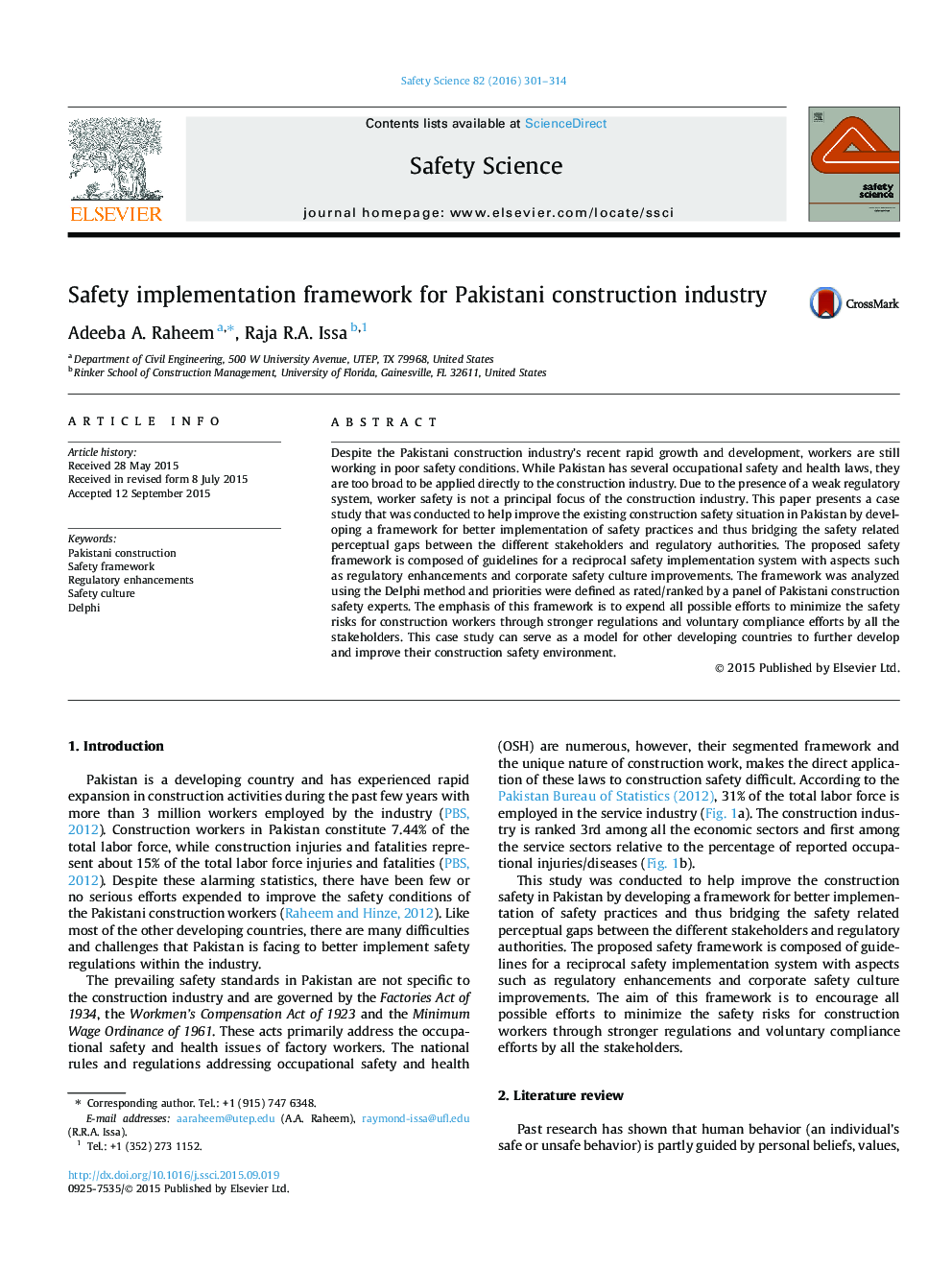| Article ID | Journal | Published Year | Pages | File Type |
|---|---|---|---|---|
| 6975607 | Safety Science | 2016 | 14 Pages |
Abstract
Despite the Pakistani construction industry's recent rapid growth and development, workers are still working in poor safety conditions. While Pakistan has several occupational safety and health laws, they are too broad to be applied directly to the construction industry. Due to the presence of a weak regulatory system, worker safety is not a principal focus of the construction industry. This paper presents a case study that was conducted to help improve the existing construction safety situation in Pakistan by developing a framework for better implementation of safety practices and thus bridging the safety related perceptual gaps between the different stakeholders and regulatory authorities. The proposed safety framework is composed of guidelines for a reciprocal safety implementation system with aspects such as regulatory enhancements and corporate safety culture improvements. The framework was analyzed using the Delphi method and priorities were defined as rated/ranked by a panel of Pakistani construction safety experts. The emphasis of this framework is to expend all possible efforts to minimize the safety risks for construction workers through stronger regulations and voluntary compliance efforts by all the stakeholders. This case study can serve as a model for other developing countries to further develop and improve their construction safety environment.
Keywords
Related Topics
Physical Sciences and Engineering
Chemical Engineering
Chemical Health and Safety
Authors
Adeeba A. Raheem, Raja R.A. Issa,
